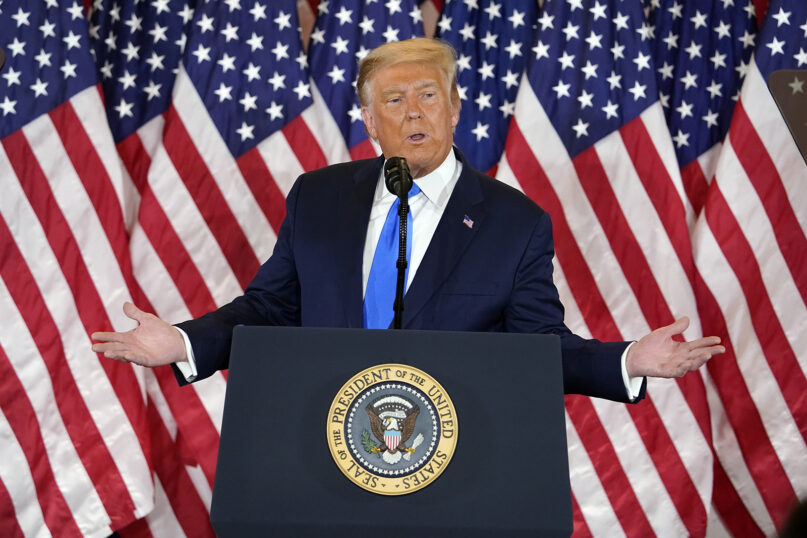(RNS) — Listening to President Trump’s “victory” speech last night, and reading his tweets today, I can’t help thinking of Theodore H. White, the great chronicler of American presidential campaigns, who died in 1986.
The year after I graduated from college, I did some intermittent research for White as he labored on “The Making of the President 1972,” the last in his quartet of “making of” volumes. In April of 1973, he had me go through the clips to put together a narrative of Watergate, which had suddenly emerged as a major element in his story — one he totally hadn’t anticipated, and which proved to be the disillusioning event of his career.
White, called Teddy by everyone, was a celebrant of America and of the meritocratic advancement the country is capable of. He’d made his way from lower-middle-class Jewish Dorchester, Massachusetts, to the esteemed Boston Latin School and thence to Harvard College, where he studied with the eminent China scholar John Fairbank.
Henry Luce, the China-born Presbyterian missionary’s son, got wind of him, so Teddy cut his journalistic teeth covering China during World War II for Luce’s Time magazine. The books on presidential campaigns are best seen as a war correspondent’s account of how two opposing armies peacefully contend for power in a democratic republic.
White finished the ’72 volume midway through the unraveling of Watergate, then turned to a book devoted to the scandal itself. Its title was “Breach of Faith.” In it he asserted that Richard Nixon had destroyed a binding national political myth that the American people would choose the best person to lead them, and that, for its part, the presidency “would make noble any man who held its responsibility.”
White believed in the importance of that myth, and before Watergate, you had to read between the lines to understand that he sometimes thought it wasn’t true.
But even in his glum last years, he couldn’t have imagined a Donald Trump as president of the United States.
Trump’s public egging on of his supporters to physically attack his foes would have appalled White. And the president’s readiness to call the legitimacy of normal electoral processes into question would have left him flabbergasted.
As for that binding myth, not even Trump’s airiest apologists would claim that the presidency has in any way ennobled him. Not that his MAGA army would have wanted it to. What they like about him — what they evidently want in a president — is someone who says out loud the things they think in their own dark moments.
And then there are those who recognize Trump for what he is, yet wouldn’t cast a ballot against him. Like the Orthodox Jewish woman who said, “I hate Trump. I mean, I think he’s just an abomination. Abysmal as a leader. Biden is a competent politician, even though he is a Democrat … but I surely won’t vote for him.”
If Joe Biden turns out to be our next president, he will, he says, seek to unify the country. The effort may, as White imagined, make him noble. But what if the country doesn’t give a damn?






